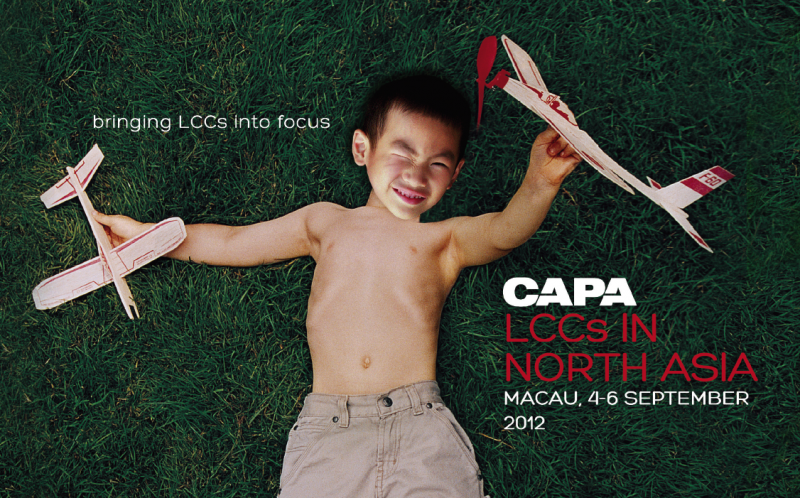A growth upside like never before! CAPA launches North Asia LCC Summit in Macau, 4/5 September
NB: For information on CAPA's 2013 LCCs & New Age Airlines in North Asia Summit in Seoul on 4/5 September, please click here.
CAPA hosted the LCCs in North Asia Summit in Macau on 4/5 September 2012. Why? Because this airline market sector promises to expand like no other before it.
The spread of low-cost operations among the 1.5 billion residents in North Asia - Japan, South Korea, mainland China, the Hong Kong and Macau SARs and Taiwan - promises to be like the cork finally popping out of a highly pressured bottle. And, for almost everybody involved, it will mean that the champagne flows freely.
That's because low-cost airline services in North Asia offer a win-win for consumers, airports, tourism bodies, regional economic development and trade. The low fares stimulate new air travel, and new entrants open up new cities with direct air services.
CAPA's LCCs in North Asia Summit will welcome CEOs from each of the LCCs based in this sub-region, as well as the airlines who fly in there. Airlines, financiers, tourism organisations, government officials, airports and industry suppliers will find this the most valuable meeting they have ever attended.
- The low-cost airline market in North Asia is expected to expand rapidly, benefiting consumers, airports, tourism bodies, and regional economic development.
- The liberalization of the North Asia market has opened up opportunities for new short-haul services and the exploitation of potentially large city pair markets.
- LCC operations in North Asia have a longer average stage length compared to other regions, with Tokyo-Hong Kong being one of the longer city pair distances.
- LCCs accounted for one in 15 seats in North Asia, but this share is expected to grow rapidly, posing a challenge for incumbent airlines.
- The LCCs in North Asia Summit hosted by CAPA brings together CEOs from LCCs in the sub-region, along with airlines, financiers, tourism organizations, government officials, airports, and industry suppliers.
- The summit will feature keynote speakers from prominent LCCs in the region, as well as industry experts and academics.
To be held at the prime venue of the six-star Venetian Macau Resort-Hotel, the Summit is easily accessible either through Macau Airport or by fast ferry direct from Hong Kong International Airport.
In addition to the two-day Summit on 4/5 September, CAPA has also brought together a team of world LCC experts to provide three full-day workshops: (1) Starting and running a successful LCC (2) How to attract LCCs to your airport and region; and (3) How to finance Asian LCC fleets.
Click here for full details about LCCs in North Asia
Liberalisation opens the door to new North Asia short-haul services
Until recently, North Asia has been bypassed by the global LCC trend towards greater efficiency in air travel on short-haul routes. Rigid entry barriers and other market distortions, coupled with limited political will to encourage mutual trade of any kind, have prevented the exploitation of potentially enormous city pair markets.
The result of repressing this natural growth has created the promise of a remarkable growth upside, as those constraints are relaxed. And, as we have seen elsewhere in the world, once the evidence appears of how effective new entry and low-cost operations can be, the process quickly accelerates. Regional economies can be quickly enhanced, prompting tourism bodies, business councils and airports to add fuel to the fire of liberalisation as they realise the immediate benefits of opening up new aerial highways. Change is now sweeping across this sub-region, with its total population of about 1.5 billion people.
LCC operations elsewhere in the Asia Pacific region have a longer average stage length than in Europe, for example - thanks to the realities of geography, market access and population centres. So, one of the longer city pair distances in the North Asian frame would be Tokyo-Hong Kong, a flight time of around 3.5 hours. Allowing a high-end of four hours for new operations would also allow Tokyo-Xi'an.
The majority of China's 1.3 billion people live within this zone of four hours' international flying, as do Japan's 130 million, South Korea's 49 million and Taiwan's 23 million. Yet air links between the different international markets have been severely limited by regulation.
LCCs accounted for one in four seats produced by the world's airlines last year. In North Asia, they account for one in 15. But this share will grow rapidly, creating a massive opportunity for airports and industry suppliers - and an unprecedented challenge for the region's incumbent airlines.
| Global LCC capacity share (%):
2001 to 2011 |
North Asia LCC capacity share (%):
2001 to 2011 |
|---|---|
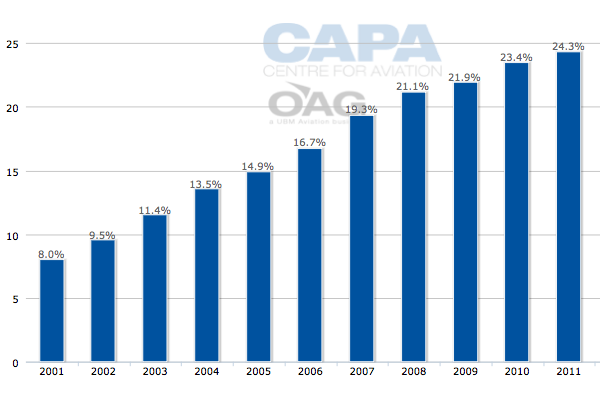 |
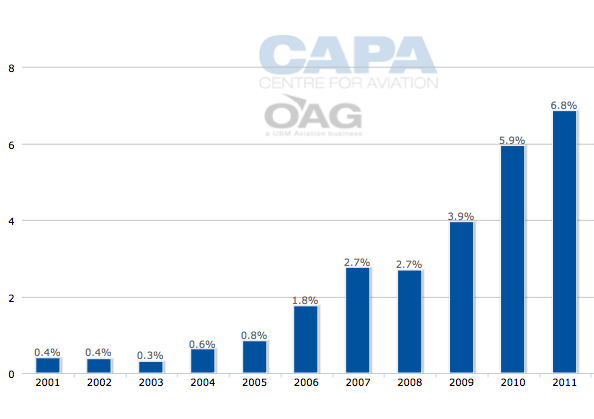 |
CEO speakers
Over two days of full conference - with simultaneous translation from Japanese, Korean and Mandarin - over 200 delegates will hear from airline and industry leaders in the comfort of Macau's spectacular Venetian Resort-Hotel. Confirmed speakers include:
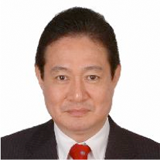 |
Shinichi Inoue
|
 |
Xiuzhi Zhang
|
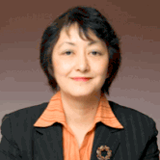 |
Miyuki Suzuki*
|
 |
Kazuyuki Iwakata
|
 |
Garry Kingshott
|
|
Campbell Wilson
|
|
|
Brian Hogan
|
 |
Robert Martin
|
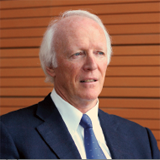 |
Peter Harbison
|
 |
(Prof.) Tae H. Oum*
|
More CEOs will be announced shortly. NB: Programme is subject to change. * Agreement to speak is subject to final confirmation.


